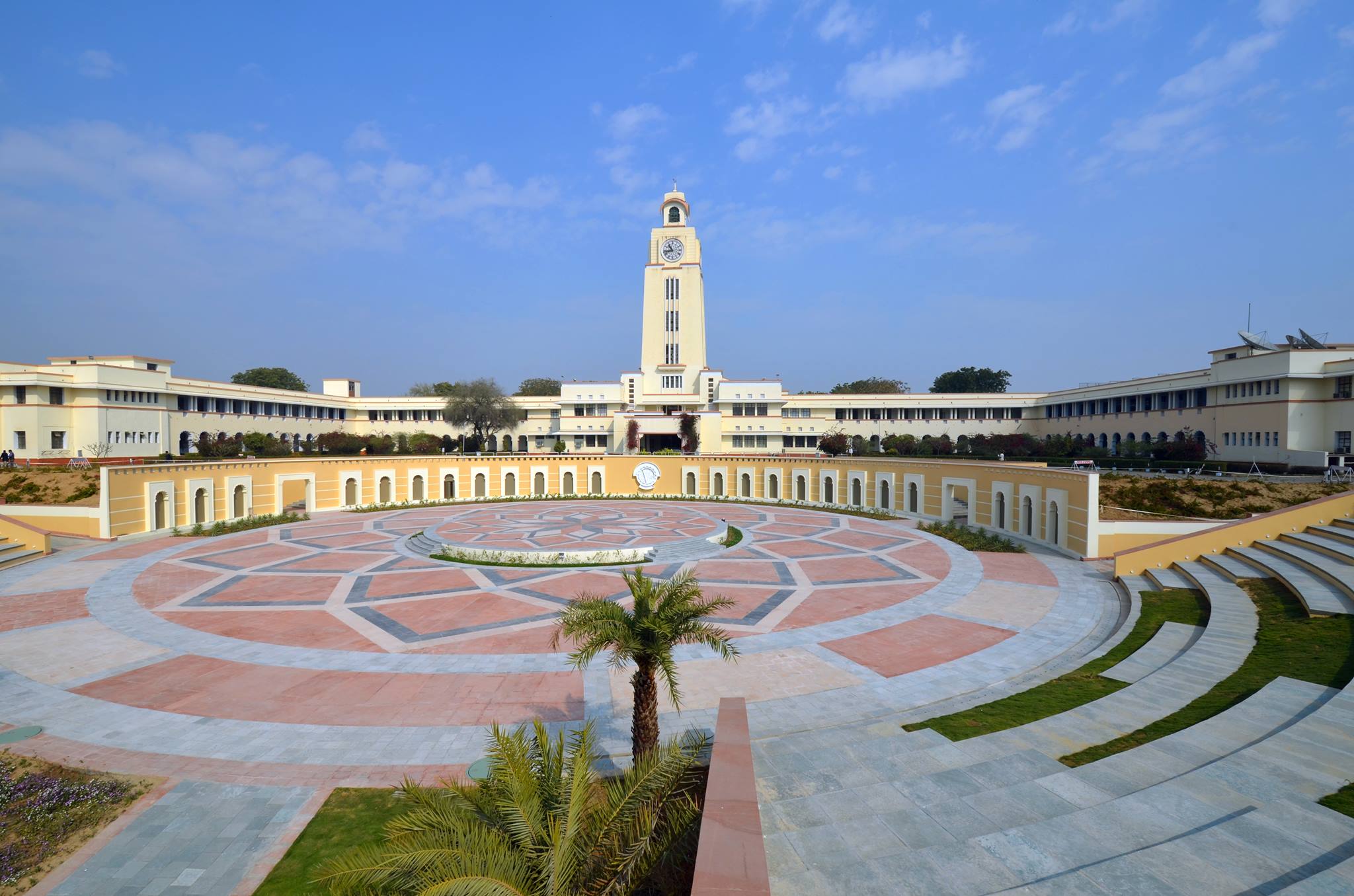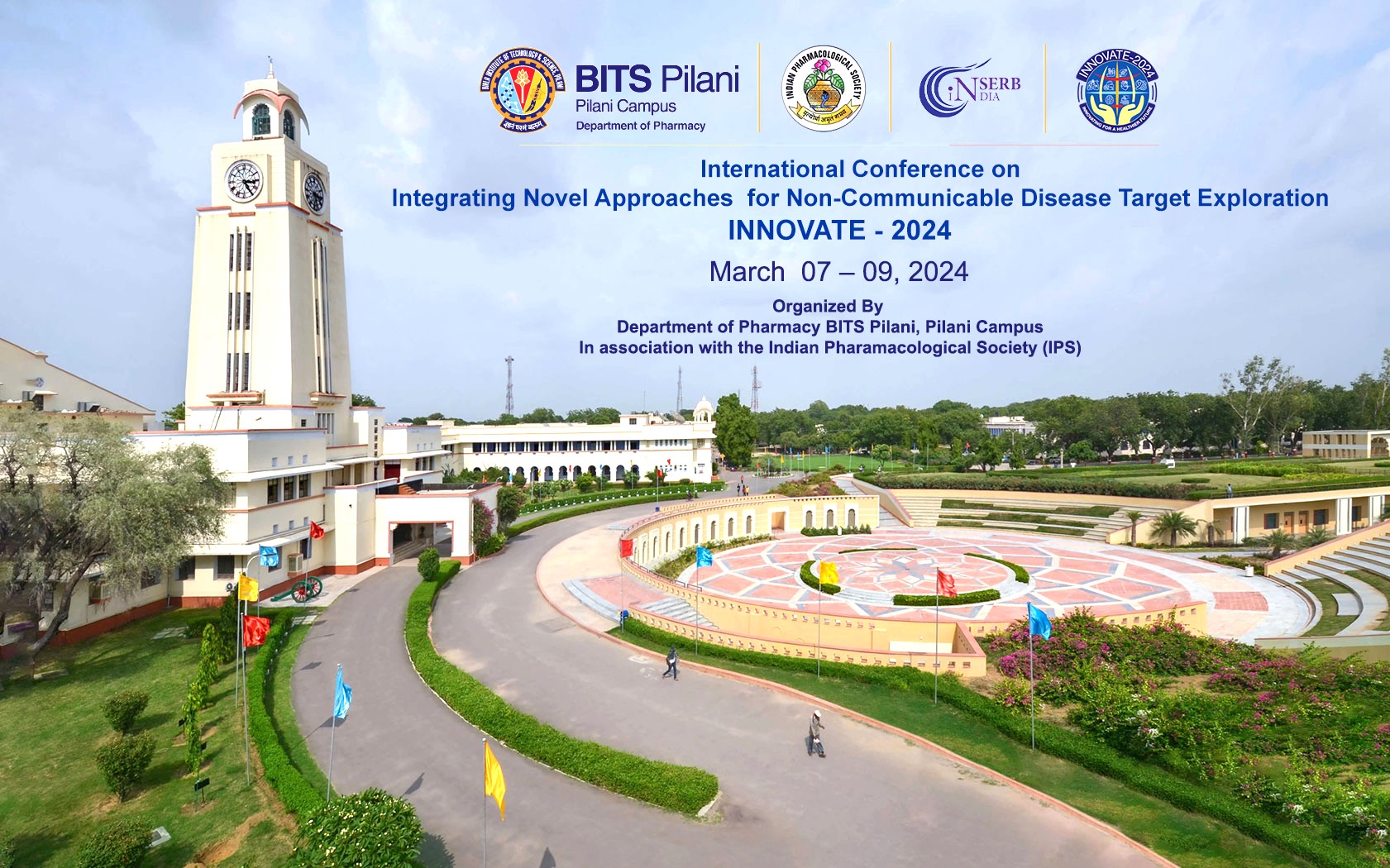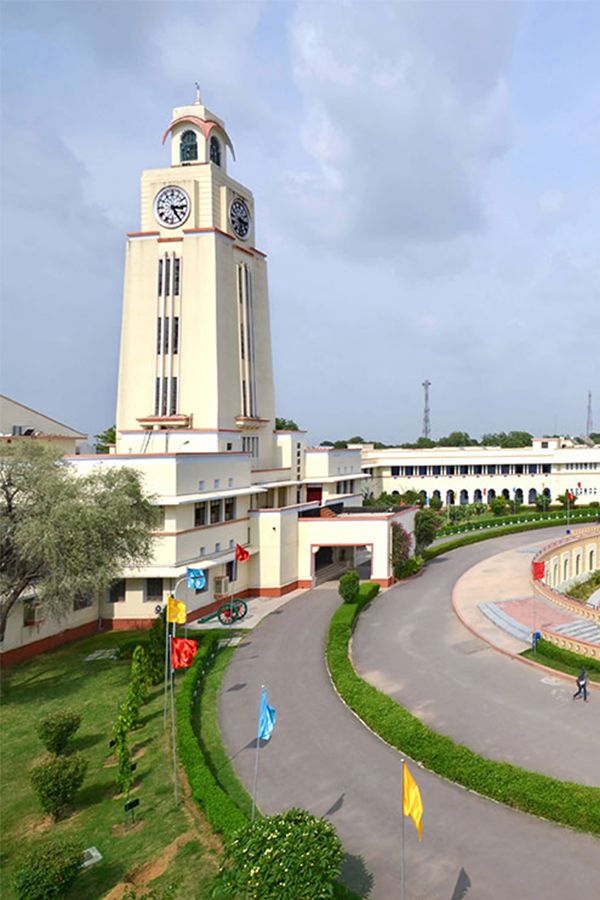About the BITS Pilani
BITS Pilani is a Deemed-to-be University, offering on-campus programs to more than 18,500 students across its campuses in Pilani, Goa, Hyderabad, Mumbai, and Dubai. It has been recognized as an Institute of Eminence by the Ministry of Education, Government of India, in 2020. In QS Asia University Rankings 2023, BITS has been ranked 188th, the only private institute from India in Asia Top 200, and at 18 in India. Further, BITS Pilani has been ranked among the top 300 in QS World University Graduate Employability Rankings 2022 and within the top 8 in India. Having pioneered several curricular and pedagogic attributes, BITS Pilani has a vision to be amongst the top research-led Institutes in the country. The qualities of innovation, enterprise, commitment to excellence, adherence to merit, and transparency have characterized the Institute during its inexorable march to eminence. The Institute has secured over ₹ 398 crores as external research funding in the last five years. State-of-the-art facilities have been developed to support cutting-edge research led by students and about 930 faculty members. This led to a Scopus h-index 156, with 221 patents filed and 41 patents granted. Currently, there are 14 BITSian Unicorns and 1 Decacorn. There are over 7500 BITSian founders and co-founders of enterprises.

The Department of Pharmacy at BITS Pilani, Pilani Campus, is one of the nation's oldest pharmacy schools; the Department of Pharmacy at BITS Pilani was founded in 1950. We achieved the 3rd rank in 2023 and have constantly ranked in the top 5 by the NIRF (National Institutional Ranking Framework) in the Pharmacy category. In addition, over the previous two years, the QS world ranking for pharmacy and pharmacology has placed our department in the remarkable 100-150 range. We are actively involved in various research fields within the department, with a committed team of 15 faculty members and more than 63 research scholars. Numerous patents, faculty-led startups, research projects, and publications in prestigious journals with high-impact factors demonstrate our faculty member's dedication to producing high-caliber research. The department has also given the technologies to the industry, and some of these products are already on the market. Additionally, we have a cutting-edge infrastructure for drug discovery and product development. Our department is motivated by a compelling aim to establish itself as a premier global pharmaceutical research and teaching center.
The foundation of pharmacology in India can be traced to Col. Ram Nath Chopra, who assumed leadership in 1921 as the first Professor of Pharmacology at the School of Tropical Medicine, Calcutta. Col. Chopra, who is justly regarded as the dean of pharmacology, started a number of research projects to examine the benefits and drawbacks of traditional medicines that have been utilized in the nation since ancient times.
The history of the Indian Pharmacological Society (IPS) begins in 1966 during the 12th Annual Conference of the Association of Physiologists and Pharmacologists of India (APPI) in Patna when a sizable group of pharmacologists made the decision to form an independent organization for pharmacologists. The new movement received significant impetus from Prof. Desmond Lawrence of the Clinical Pharmacology Division at the University of London. In order to integrate pharmacology into medical education and to work towards the all-around growth of pharmacology, two crucial goals were outlined. Later, the requisite impetus was given by Professors G.Achari, K.P. Bhargava, R.P. Kholi, and P.N. Saxena.
Under the capable direction of Prof. G. Achary, the inaugural Annual Conference of IPS was organized by a steering committee in 1968 at Patna. The International Union of Pharmacological Sciences President and famous pharmacologist Prof. B. Uvnas of the Karolinska Institute in Stockholm, Sweden, officially opened it on January 5, 1969.
IPS was recognized as the official National Society of Pharmacologists of India at the Fifth IUPHAR, which was held in San Francisco in July 1972. The IUPHAR Council Meeting was held in Helsinki in July 1975, and IPS was given permission to send representatives from India. Since that time, IPS has advanced and expanded annually. 5000 Life Members currently belong to academic/research institutions or businesses. The Society's members achieved great success in their specialized sectors, and many of them have won awards for excellence. Dr.Ranjit Roy Choudary received the Padmasri Award, Dr. U.K. Sheth, Dr.RR Choudhary, and Dr. O.D. Gulati received the Shanta Swaroop Bhatnagar Award, and members of the IPS have served on the advisory boards of numerous national and international organizations that work in the field of education.
In the glorious century of scientific advancement, the contribution of Pharmacologists in India is well recognized. In spite of sophisticated infrastructural facilities, we have abundant expertise and a magnificent ancestral legacy of indigenous systems of medicine. This is still vibrant and promises to show to the world the immense potential of Indian Pharmacologists. The time has come for Pharmacologists to concentrate more on operational research, especially on cost-benefit analysis and improvement in the quality of life, as drugs are considered to be the major requirements of the health care budget.
About the Conference
Non-communicable diseases (NCDs) are a broad group of ailments, including cardiovascular diseases (CVDs), cancer, diabetes and complications, obesity, chronic kidney disease (CKD), neurodegenerative disorders, and chronic respiratory diseases (CRDs). Globally, NCDs are the leading determinant of mortality, with ~41 million deaths/year out of 55 million. NCDs’ worldwide epidemic poses a challenge to the healthcare systems of all nations. In India, the NCD-associated mortality is around 5.8 million/year. The impact of NCDs in India has changed, with communicable diseases declining and NCDs rising significantly. NCDs are generally chronic and may occur due to lifestyle, genetic, and environmental factors. The paucity of reliable NCD monitoring is a major obstacle to effective NCD prevention/management planning and implementation. The current global challenges in the domain of NCDs are the identification and validation of new druggable targets and lead compounds.
This conference will address the global challenges and current trends for NCDs, emphasizing diabetes and complications, CVDs, CKD, CRDs, cancer, and neurodegenerative disorders. Further, the conference will highlight advances in current and emerging strategies for discovering novel targets and drugs for NCDs. The conference will include lectures by experts from academia, national research labs, and industry. The delegates will be given the opportunity to present their work as posters and oral presentations.
Themes/Topics of the Conference
Important Dates
|
Conference dates |
07th – 09th March 2024 |
|
Registration deadline |
31st January 2024 |
|
Abstract submission deadline |
26th January 2024 |
|
The decision on the submitted abstract |
31st January 2024 |




